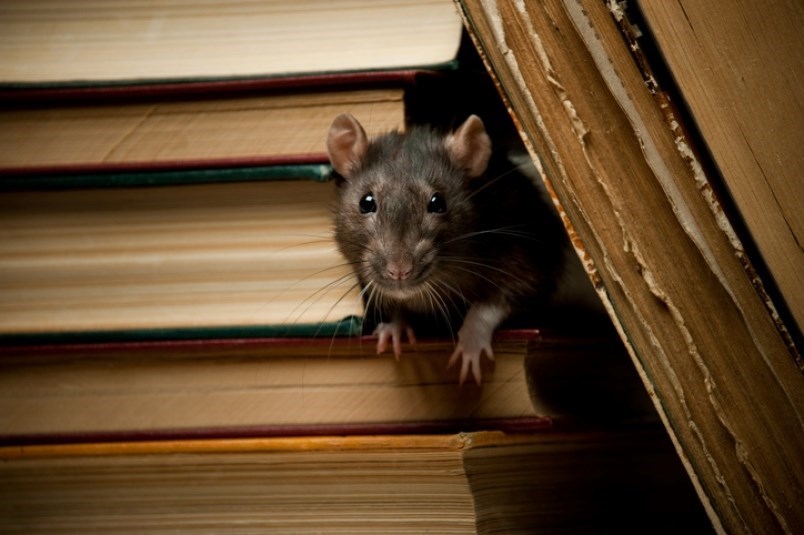The COVID-19 pandemic has impacted our lives in so many ways, from cratering employment to pushing our health-care system to the brink.
And then there are the rodents. Rats, to be more specific.
When the pandemic shut down restaurants in spring 2020, and then later to in-person dining, that meant a dwindling food supply for rats to feast on. And so, the rats moved wherever the food went, which meant into more residential areas, especially when the weather got cold. Rats are known to hide under the hoods of vehicle where it is warmer.
Now, restaurants are fully open – meaning a big food supply for rats is getting tossed in the trash.
“I’m seeing them return in a big way,” one restaurant manager in the Metrotown area told the NOW . “We do a good job of disposing of our old food and when I take a bag out to the back alley I can literally seeing them fighting with each other. There’s just so many of them because many of my fellow restaurant owners aren’t taking care of business. They leave their bins open and it’s really brought more of them to our area.”
The manager said that one issue for businesses is that so many are struggling financially that they have had to cut back on things such as pest control services.
The three main types of rodents in Burnaby are black rats (roof rats), Norway rats and house mice, according to Fraser Health.
“They run rampant all through our alley,” said Alice, a longtime Edmonds resident who is fed up. “We live really close to a bunch of restaurants and these workers are doing a terrible job of locking up their trash, which attracts the rats. I’ve asked these workers to do better and they promise to but then we see it all happen again. I'm hoping they read this and do better.”
The NOW has done some research and here are a few tips for handling rats.
Prevention:
- Get rid of your bird feeder. The seeds spread all over the ground and attract rats. When you feed the birds, you’re probably feeding the rats.
- Make sure your garbage is tightly bagged and sealed.
- Keep your compost bins shut. If it’s an open compost, turn the pile over all the time. Don’t leave food scraps on top for the rats to eat.
- If you have fruit growing in your yard, remove it as soon as it’s ripe. Rats love fruit.
- Do not leave pet food or water outside.
Pest proof buildings:
- Cover crawl spaces, fresh air and attic vents with 6mm (1/4 inch) metal screening or steel mesh.
- Seal any possible entry points in the building exterior that are greater than 6mm (1/4 inch). Pay close attention to door jams and gaps between the siding and the house foundation. If you have roof rats don’t forget to check for holes in areas of the roof.
- Repair cracks in cement footings and foundations.
- Build sheds on concrete slabs.
Detection:
- Look at your property for signs, like droppings, burrows or things that have been chewed or gnawed.
- Watch your pets because they will pick up on a rat’s scent and get excited.
Removal:
- Use traps and glueboards for indoor infestations and bait for outdoors. You don’t want a rat to eat poison bait inside and die somewhere in your walls, where it’s difficult to remove the carcass.
- “The best way to get rid of rats or mice is by using traps,” says Fraser Health. “If using spring loaded traps for rats, bait three of them in a row without setting them. Bait with dried fruit, peanut butter mixed with oats, or cheese. Set the traps at ‘right angles’ (90 degrees) to the walls where the rodents are known to travel, with the bait side of the trap toward the wall. When the rodents get use to feeding, set the traps. Make sure the bait is securely attached to the trip pedal so the trap springs when the food is removed.”
Meanwhile, the B.C. government has temporarily banned the sale of rodenticides to protect owls and other wildlife from poisoning.
The Environment Ministry says it will review alternatives during the 18-month ban of “second-generation anticoagulant rodenticides,” which are more powerful than other rodent controls and increase the risk of poisoning of creatures that eat these animals.
It says in a news release that agricultural production, food safety and health services like hospitals, food processing storage facilities, restaurants and grocery stores are exempt from the ban.
The ministry says it will update pesticide applicator certification material and educate users on methods to minimize harm.
It says the pesticide will be used as the last line of defence.
Environment Minister George Heyman says in a statement that rodenticide use is harming, and too often killing, birds, pets and other wildlife.
Deanna Pfeifer, with the Rodenticide Free B.C. campaign, welcomed the ban saying there are a number of alternative pest management approaches that are safer, humane and effective in the long term.
- With additional reporting by the Canadian Press


